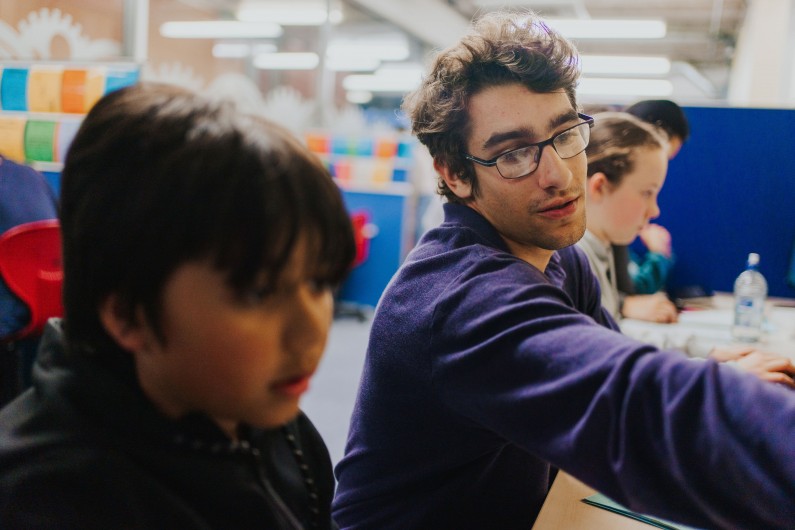The value of mentorship for children

We know that children are impressionable, and model the behaviour they see from others around them, including parents, teachers, and their peers. As parents and educators, we try to demonstrate the best behaviour we can, while finding teachable moments in everyday life. Having role models outside of a child’s family unit is important, as diverse relationships with people from different backgrounds are beneficial to a child’s development. Mentoring is a way to connect young people with others who can guide, support, challenge, and encourage them. Though mentorship is primarily associated with career development in adults, there is benefit in establishing mentorship relationships in children too.
We have compiled five compelling reasons to get your children involved in mentorship, which can support their growth and development, and lead to greater confidence. Read on to learn more about the power of mentorship for children.
1. Higher self-esteem and confidence
Mentors provide a breadth of benefits to their mentees. Having a mentor who believes in a child’s abilities and potential can boost their confidence and self-esteem. Mentors typically home-in on the strengths and development opportunities of their mentees, by asking probing questions that help the mentee understand themselves better, and identify their strengths. Mentorship can be particularly beneficial for children who are shy or reserved, and need encouragement to come out of their shell. Mentoring can also help children to develop confidence, by having a cheerleader who is invested and passionate about their success.
2. Accountability
Accountability is an important factor in sustaining achievement. A mentor will often set challenges for their mentee that relate to their goals or weaknesses, and then follow up with them in future mentoring sessions. This added layer of accountability in a child’s life encourages good behaviour and follow-through from children, who don’t want to let their mentor down. Mentors also help children set goals for themselves, often breaking these goals down into smaller steps, that serve as a road-map to achieving the end result. This might look like challenging a child to get a certain grade in a tricky test/exam, read a certain number of pages/books in a period, or master a new skill.
3. Improved communication skills
Communication is an important skill to develop in children. Mentorship can help children learn how to communicate with different people, who they may not have interacted with previously, and allows them to experience different relationship dynamics. Improved confidence as a result of a positive mentorship relationship can also help children strengthen their communication skills.
4. Direction and inspiration
Children who receive mentorship from an inspirational mentor may begin to see themselves in a different light, and feel empowered to achieve more.
Depending on the child’s age, a mentor may help them set career goals, consider a wider range of study options, or help them to visualise the next year of the education, and what pathways or subjects may be a good fit for them. A mentor provides a new perspective, and can help children see themselves in new ways. They also encourage their mentee to consider educational pathways, set goals, and remove limiting beliefs about their potential. They may recommend tutoring, courses, travel, or events, that can help them to broaden their horizons, and learn more about the world, and what options are available to them.
5. Increased focus on education
Having another adult or young person invested in their education helps children to feel supported to achieve their goals. A mentor may encourage their mentee to strive to achieve beyond what they had thought possible, by demonstrating success and achievement in their own life. Having a mentor to look up to, who has completed their schooling, or gone on to university, can serve as a roadmap and example of what is possible for any dedicated student. This may inspire them to put more effort into a subject that they struggle with, and seek out additional support, either at school or by receiving tutoring for a subject where they lack confidence.
Mentorship helps children to remove limiting beliefs, build confidence, develop communication skills, and consider pathways that they may not have thought possible. Having support outside of the home and classroom is important for children, and helps them to feel confident. If you have identified academic strengths or weaknesses in your child, or they need support with their learning, tutoring with NumberWorks’nWords could be a good fit. Our tutoring methods focus on supporting students to achieve their best results, while building confidence, and celebrating success. To learn more about maths and English tutoring with NumberWorks’nWords, get in touch with your local centre.



